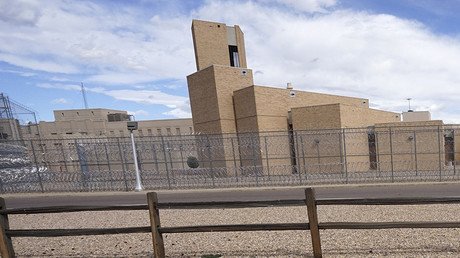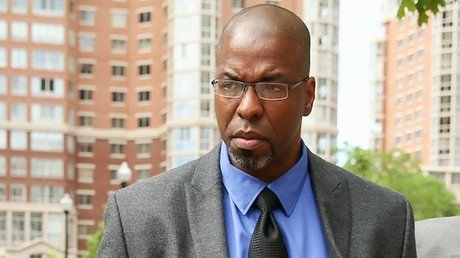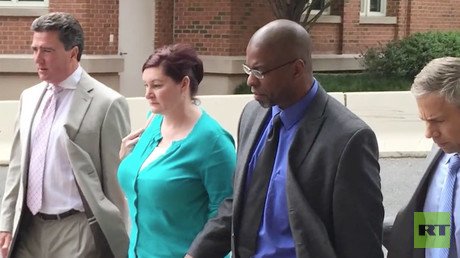‘Jeffrey Sterling has become invisible hero, forgotten by media’
Journalists never ask about former CIA whistleblower Jeffrey Sterling, who has become an invisible man to the media, former US Senate candidate and political activist Arn Menconi told RT.
The US intelligence whistleblower has been released from prison, where he served time after revealing CIA mismanagement of a classified program to the Senate. He had been sentenced to three-and-a-half years under the Espionage Act, but was freed after two years.
However, Sterling was not jailed for what he told senators – he was accused of leaking classified information he shared with the Senate to a journalist. His sentence was considerably shorter than the usual 19-year minimum, reportedly because all the evidence against him was circumstantial.
Arn Menconi, a former US Senate candidate and political activist who petitioned for Sterling's release, explains how he ended up being treated as a traitor.
“Jeffrey was a CIA officer and he spoke perfect Farsi, and he was hoping to work in the Middle East. Instead, prior to his assignment in the Middle East, they said that it wasn’t going to work because he is too big and too black. And he said to them ‘When did you realize that?’
“So, they went from one job to another job to ACLU in New York and he decided at that point, this isn’t what he signed up for in the CIA when he came in 1993,” Menconi told RT.
“He backed off, he stepped down from the CIA and he pressed discrimination charges. Those discrimination charges had to be dropped in early 2000,” he explained.
Menconi said that, during that time period, New York Times reporter James Risen, now with the Intercept, had around 50 conversations with Sterling.
“And then James Risen released a book [in 2006] called ‘State of War,’ in which he disclosed the CIA’s botched release of nuclear plans to Iran, even Jeffrey tried to tell a Senate Intelligence Committee about this information,” he recalled.
According to Menconi, “they tried to go after James Risen to find out who his source was.”
“Just around that same time, they arrested Jeffrey. They dropped the Risen case because Obama didn’t not want to go after a reporter because the heat was on Obama and the Obama administration because he was going after a journalist.”
Menconi said they went and took Jeffrey to court.
“The only type of evidence that they had was circumstantial evidence, and a CIA agent saying that it was a disgruntled employee that released information because of his discrimination case,” he continued.
Sterling has maintained his innocence for almost 17 years. Menconi also noted that journalists are never asked about, nor ask about, Jeffrey Sterling.
“And this is a man who has become an invisible man, or forgotten man, who is in my mind a hero,” he said. “The ACLU wouldn’t even handle this case. We have to reach out to other types of outlets enabled to tell his story,” Menconi told RT.

















